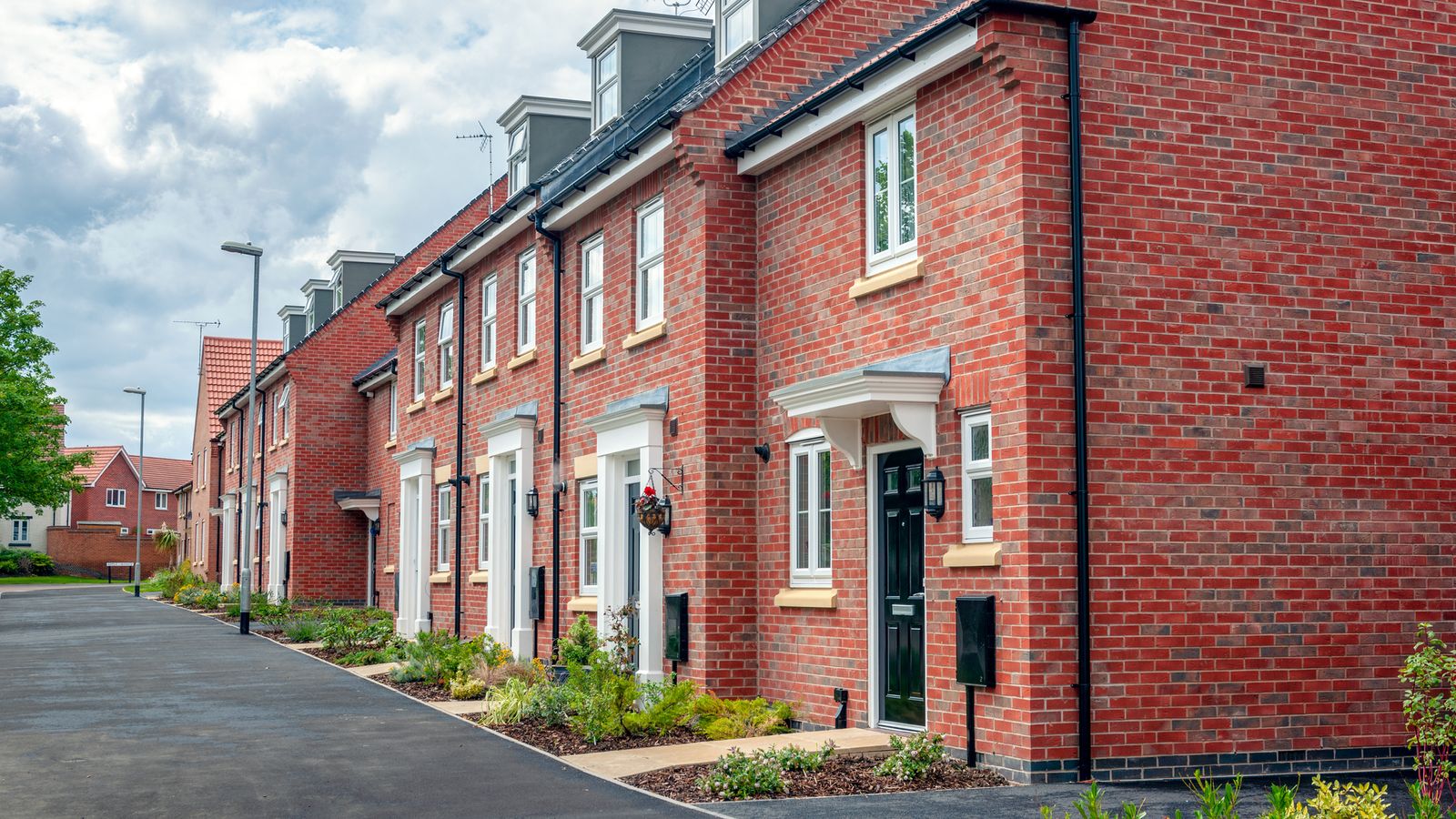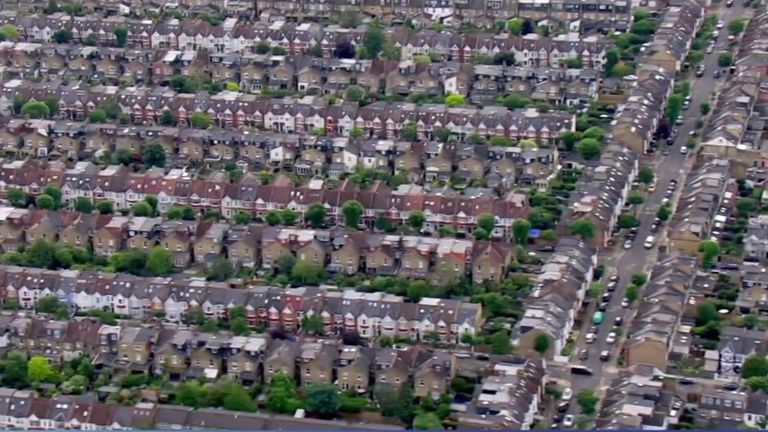House prices have fallen for the sixth month in a row and dropped 1.1% in the year up to last month, according to one of the UK’s biggest mortgage lenders.
House price data from Nationwide building society showed it was the first annual decline since June 2020.
On a monthly basis, the price fall from January to February was 0.5% – the weakest month since November 2012.
The decline brought the average house price to £257,406 in February, down from £258,297 in January.
House prices last month were also down 3.7% from the peak of last August.
Mortgage approvals are also down, dampening demand for houses.
Official figures released today by the Bank of England on Wednesday showed net mortgage approvals decreased for the fifth month in a row, to 39,600 in January from 40,500 in December.
If the COVID-19 pandemic period is excluded, this was the lowest net approvals figure since January 2009 (32,400).
But the lower prices do not make it easier for first-time buyers, Nationwide’s chief economist said.
For a prospective first-time buyer earning the average income and looking to buy the average home, mortgage payments remain well above the long-running average share of take-home pay.
Read more
Why it’s more difficult for young people to buy a house now than it was fifty years ago
Deposit requirements remain “prohibitively high for many”, Robert Gardner said, and saving for a deposit “remains a struggle” especially for those in the private rented sector, where rents strongly increased.
The situation may improve if inflation moderates in the coming months as expected, Gardner added, as wage increases combined with declining house prices would support housing affordability.
While the market instability that followed the Liz Truss mini-budget has cleared up, Nationwide’s chief economist said housing market activity had remained subdued.
Those effects have impacted market confidence and have added to the broader economic factors weighing on households, such as double-digit inflation and falling real wages, as pay rises failed to keep pace with inflation.
The September mini-budget and associated mortgage upset was described as a “turning point for the market” by Sarah Coles, the head of personal finance at Hargreaves Lansdown.
“After withstanding months of increasingly painful inflation, buyers were at full stretch – and the mortgage market mayhem in the aftermath of the mini-budget was the final straw,” she said.
“We knew from that point that a house price correction of some kind was likely to be on the cards.”
While prices were expected to continue falling, where the housing market goes next is uncertain, said Ms Coles.
“The question is whether this is the beginning of a gradual and modest deflation, or a bubble that’s set to burst. There’s no doubt we’ll see more falls in the coming months, but overall predictions of drops come in anywhere between 5% and 12%.”
“Unfortunately, it’s getting increasingly difficult to remain optimistic.”

